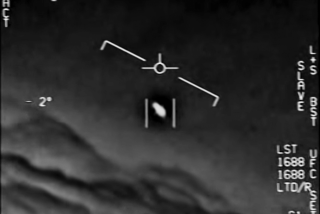50 years after discovery, quasars remain astrono-mystery
Half a century after the first quasar was spotted, astronomers say they have yet to shed much light on the behavior of these cosmic beacons.
This weekend marks the 50th anniversary of the discovery of the quasar -- an extremely bright object powered by matter falling into a super-massive black hole lying in the heart of a galaxy.
First found in 1963, these strange sources of radio waves initially stumped astronomers: They shone bright as local stars, but were clearly too far away to be in our Milky Way galaxy -- earning them the name quasi-stellar radio sources, or quasars. Eventually, scientists realized that a galactic black hole would have the power to produce such strong light at such mind-boggling distances.
Compared with faint galaxies, quasars offered a tantalizing peek into the very distant universe -- and thus, a look into its past. And they’re still serving up surprises. Just days ago, astronomers announced that they had discovered an ultra-rare triplet of quasars, allowing them a glimpse into the evolution of large structures in the universe.
Some scientists, however, think we haven’t learned enough from these luminous objects. In a commentary published in this week’s edition of the journal Nature, UC Santa Barbara astrophysicist Robert Antonucci says that astronomers have resorted to tallying up the number of quasars, rather than analyzing how they might work.
“Without predictive theories we have nothing -- our best hope for understanding quasars is that extraterrestrials might drop in and explain them to us,” Antonucci wrote.
Still, quasars have played a groundbreaking role in allowing scientists to understand the far reaches of space -- and the development of the early universe, said Caltech astronomer Maarten Schmidt, who discovered the first known quasar, 3C273, in 1963.
“The universe before quasars used to be a rather quiet place -- at least, that’s what the astronomers thought,” Schmidt said. “And it turned out that all sorts of things are happening in the universe that we have found out in just about the past 50 years.”
For a full Q&A; with Schmidt on the anniversary of the quasar’s discovery, March 16, check back for Saturday’s Science File.
Follow me on Twitter @aminawrite







